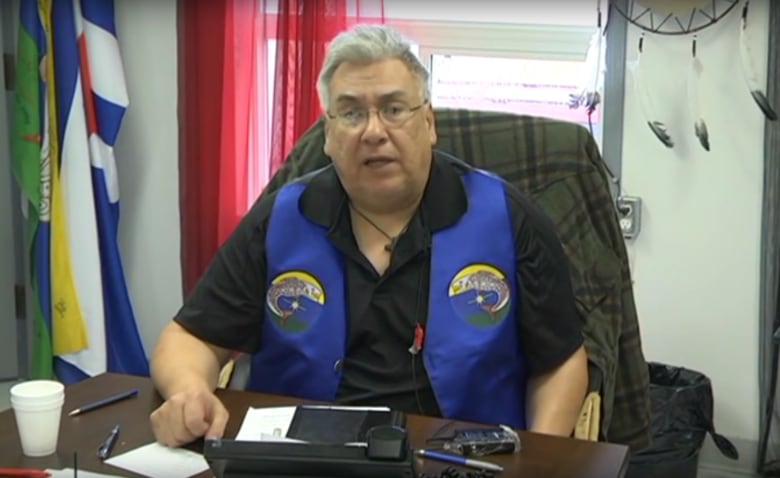Here’s how some in northwestern Ontario are reflecting on Treaties Recognition Week
In 2016, Ontario passed legislation declaring the first week of November as Treaties Recognition Week.
Each year, Ontarians are encouraged to think about the importance of treaties, legally binding agreements that form the basis of the relationship between Indigenous, Métis and non-Indigenous people.
The four treaties in northwestern Ontario include:
- Treaty 9.
- Treaty 5.
- Treaty 3.
- Robinson-Superior Treaty.
This week, Superior Morning brought listeners a few stories about what these treaties mean for the region and what people are doing to commemorate treaty rights and obligations.
Personal relations with treaties
Donny Morris, the current chief of Kitchenuhmaykoosib Inninuwug, said he was told his grandmother witnessed the signing of the 1929 adhesion to Treaty 9.

“As far as I can remember as a child growing up with my grandparents, uncles and aunts, I was always told to respect the land as it provides,” Morris said in the Superior Morning interview.
“We took what we want wherever we were living. Not once we were ever told this land did not belong to us. Naturally, myself, growing up, knowing it was our land, I knew that we grew up knowing what we had to do to provide by whatever means we saw our elders and parents were doing.”
Morris said he was always told to respect non-Indigenous people, and the agreement to share the land was the common language.
“This is the same message we’re passing on to our children and our people, that as long as the sun shines, the river flows, the grass grows, the treaty will be honoured,” he said.
“Sometimes we feel with our trading partners, Ontario and Canada came to K.I. [Kitchenuhmaykoosib Inninuwug] in 1929 to sign treaty with us between K.I. and the Crown, and for some reason I would say we kind of have been left behind from the other parties that are our treaty partners.”
LISTEN | Here’s the full interview with Chief Donny Morris.
Importance of treaty education
For Joshua Manitowabi, understanding the history of treaties, specifically around the Great Lakes, is something he’s immersed himself in through his studies as a PhD candidate at Brock University.

Manitowabi said Treaties Recognition Week is an important tool for better education surrounding treaties in northern Ontario, and the role Indigenous people and all Canadians have in honouring them.
“I think we need more educational curricula on treaty education and our elementary and secondary schools. So I think Treaties Recognition Week is an extremely important step in developing more curricula around treaties,” said Manitowabi, a member of Wikwemikong First Nation.
Manitowabi said education also serves as a tool for reconciliation and more questions need to be asked about what treaties mean to one another.
“From a non-Indigenous perspective and from the Indigenous perspective, is it a piece of paper? Is it a nation to nation agreement? Is it a Wampum Belt? Or is it an ongoing relationship? And I think it’s all four.”
LISTEN | Here’s the full interview with First Nation member Joshua Manitowabi.
Moving forward
Sara Mainville is the former chief of Couchiching First Nation in Treaty 3, and now works as a lawyer with Olthuis Kleer Townshend (OKT) Law in Toronto, representing First Nations as legal counsel.

Mainville spoke about the work that needs to be done for both First Nations and the Crown to understand what specific treaty obligations mean.
She cites proceedings of the Ring of Fire mineral development region as an example.
“I think it’s really self-evident that both parties, the Crown and Indigenous Peoples have very different viewpoints about what the treaty obligations are for either party,” Mainville said.
She explained a number of barriers presented by treaty relationships, adding that different historical experiences of First Nations impact the way obligations are upheld.
“We have a bunch of tools out there, but it’s only those communities that have the capacity, you know, to look for them and to learn how to use them that are helping themselves and other communities that are languishing,” she said.
“As a treaty partner, because we learn that Ontario is indeed a Treaty partner that Ontario needs to facilitate, dispute resolution is a foundational element of working through these regional developments.”
LISTEN | Here’s the full interview with lawyer Sara Mainville.
